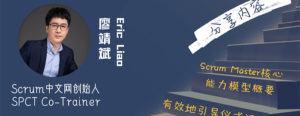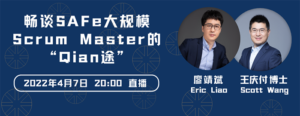The individual performance appraisal of scrum product team members has always been a very heated topic in the agile circle, because it is an unresolved industry problem so far. The main reasons for the difficulty are:
1. Traditional functional managers no longer engage in transactional management work in the self-management team, and members’ personal work conditions are dimmed
2. In the traditional functional assessment method, the departmental KPIR does not target a specific product, and there is no basis for scoring
3. Individuals in cross-functional teams are often working outside departmental walls
4. It is impossible to objectively and quantitatively measure individual contributions
As an agile practitioner, I have been trying different methods from 2006 to now, from 360 assessment to OKR, and I always feel that something is almost missing. Moreover, the results of various performance appraisals often make everyone, including managers and team individuals, very frustrated. It wasn’t until I read Daniel Pink’s “Driver” that I suddenly realized that performance appraisal should not be used to motivate organizational members? Then why are the existing performance appraisal methods often anti-incentives? Shouldn’t the self-management team know the individual contributions of the team members best? Does that mean that the performance appraisal of the Scrum team should actually be done by the team members themselves? Let them divide the year-end bonus directly? Will you fight and go to the hospital?
I found some answers in another book “Happiness Leadership”, which may become a new idea for performance appraisal of self-managed cross-functional teams. Welcome to share your views with me.
Activity form: Remote live broadcast sharing + interactive communication of Tencent Conference, it is recommended to download the client in advance
Event time: January 23, 2022, 19:00 – 21:00
Number of people: limited to 300 people
Activity fee: free
Sign up
successfully concluded.
Share guests

- Scrum Chinese website senior consultant and trainer
- International Scrum Alliance Certified Scrum Trainer (CST)
- Enterprise Agile Coach
- PMP senior agile development project expert
- Available in Chinese and English
- CSM, CSPO, CSD, CSP, PMP
Directly participated in or led the agile transformation of several Fortune 500 companies (Electronic Arts, Cisco, State Street, Fampkinco, etc.), and provided services for more well-known enterprises (JPMorgan, IBM, HP, Philips, EMC, Motorola, Nokia, Intel, Accenture, CapGemini, RingCentral, China Mobile, HSBC, AXA, Bank of China, China Trust, Daimler, BMW, Huawei, Lenovo, Sina, etc.). His services cover 14 countries and regions: Ireland, UK, Czech Republic, Saudi Arabia, Egypt, India, Singapore, Malaysia, Sri Lanka, Mainland China, Hong Kong, Taiwan, Australia and the United States.
ScrumAlliance certified trainer (CST, 268 people worldwide), is also an early project management practitioner and PMP in China, and has certified more than 10,000 CSM, CSPO and A-CSM globally.
With more than 20 years of experience in the IT industry, he is also one of the earliest agile practitioners in Asia. He focuses on disseminating and promoting new agile concepts and practices such as Scrum, Kanban, and LeSS; cultivating efficient agile teams and excellent agile practitioners; philosophy and culture.




